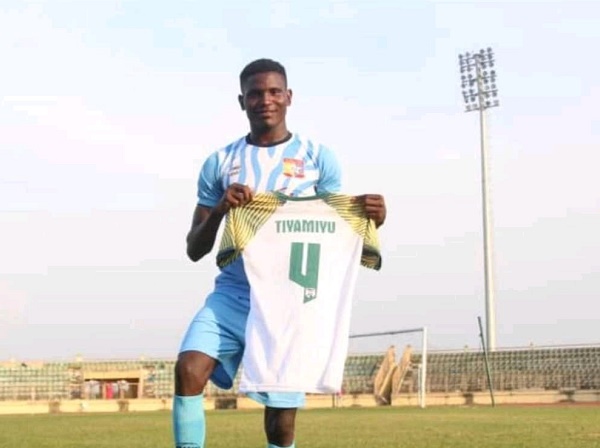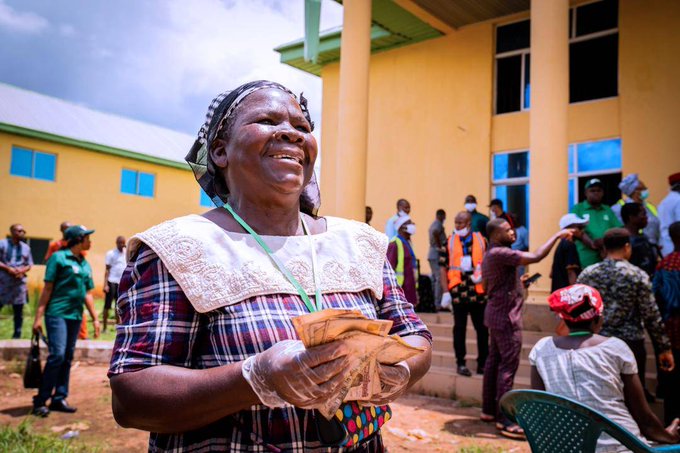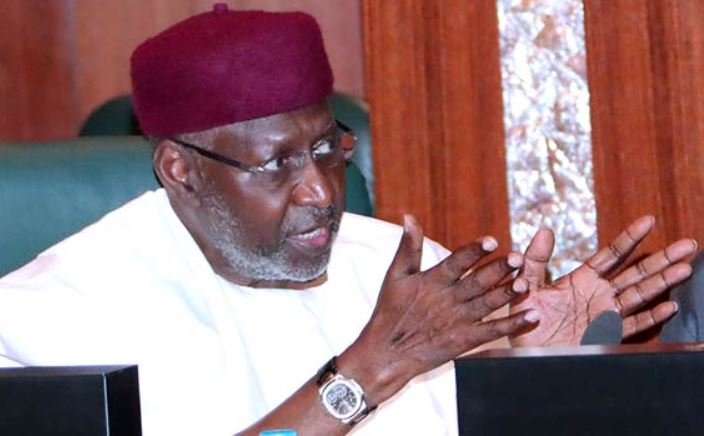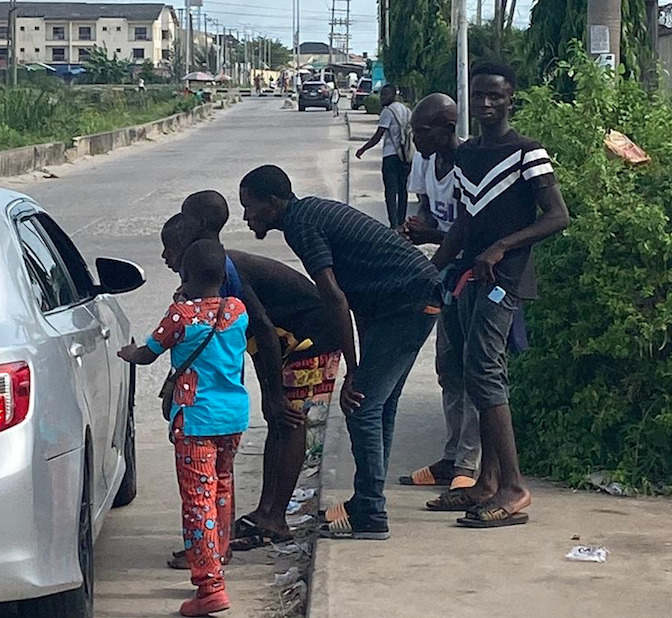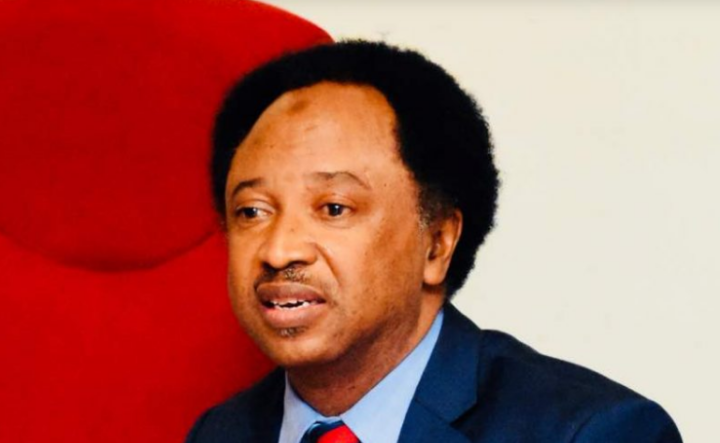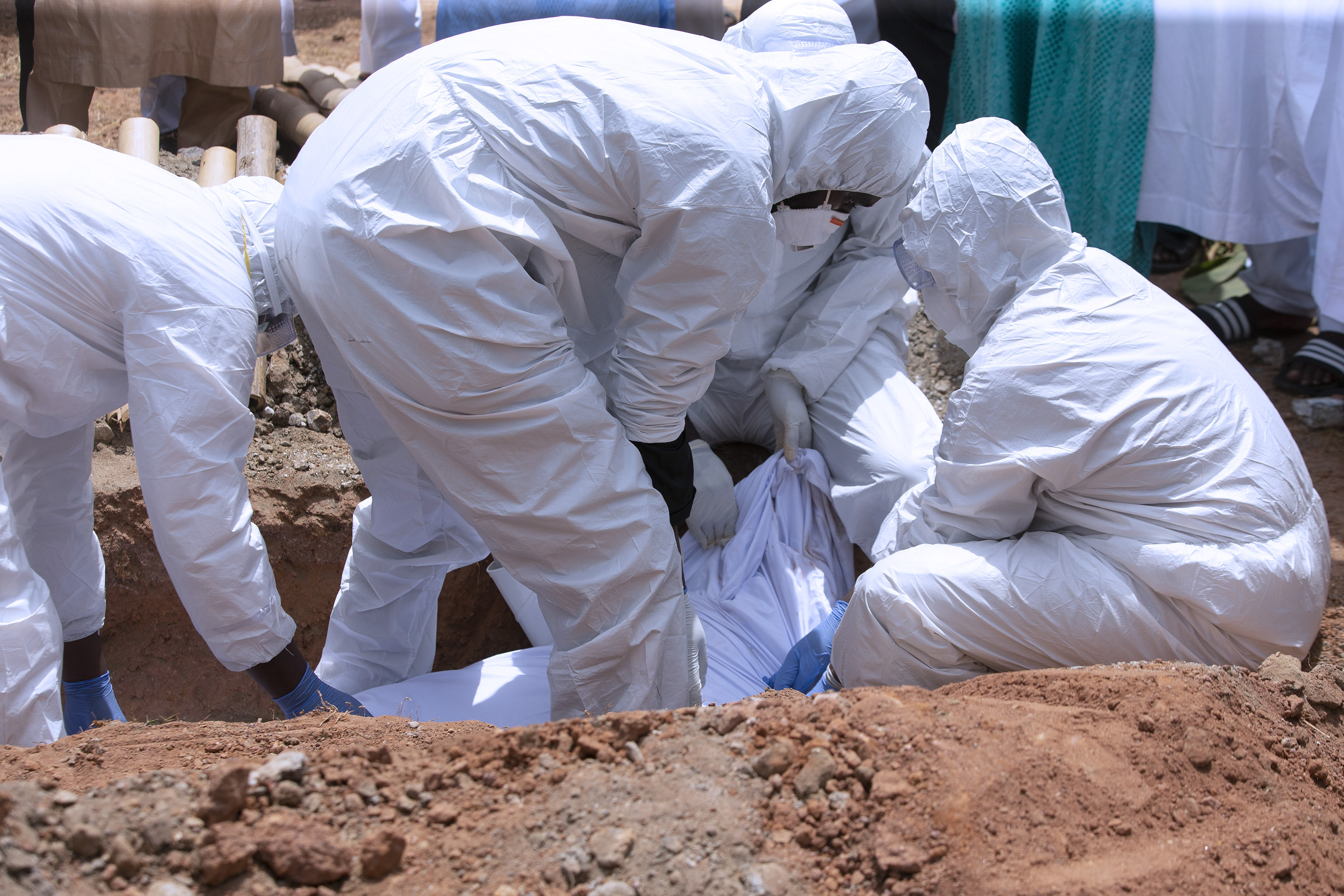How Remo Stars FC player 'killed by SARS operative' in Ogun
In February, four young men lost their lives in Sagamu, Ogun State. They are victims of brutality that has characterised operations of the Special Anti-Robbery Squad (SARS), a unit of the Nigerian Police Force. The police authorities hurriedly made promises that justice would be served. But people are skeptical, believing that the victims would soon be an addition to statistics of police extra-judicial killings in Nigeria. In this report, The ICIR’s Editor, Ajibola AMZAT, tracked the family of each of the victims who re-lived personal experience of their loss in a manner that questions the efficiency of Nigeria’s criminal justice system.
KAZEEM Tiamiyu, aged 25, left home one Friday evening in February to meet his manager, Oluwaseun Oyesanya, who just arrived Sagamu from Lagos. The man was the bridge to his dream for a sensational football career in Europe and Kazeem was always excited anytime he was in town. The manager had recently completed a plan for him to meet with some foreign partners in Sweden. So, that evening, he told his parents he would be sleeping over at the manager’s house but promised to return the following morning.
He never did.
The next day, his father Honourable Fasasi Tiamiyu, received a phone call from a stranger asking him to come to the General Hospital Owode–Egba in Ogun State to see his son who had gotten into a fight with a policeman. The fisticuffs turned tragic, the man at the other end told him. But Hon. Tiamiyu did not believe the words of the strange caller because his son was not a trouble maker.
Advertisement
“You never could find him fighting anyone. Never!” The father said to the reporter who visited the family in February, pointing at the pencil portrait of Kazeem.
Arriving at the hospital less than 30 minutes later, he saw his son lying face-up on a rusty wheel stretcher in his navy blue jersey. His body was lifeless.
For a while, he stood there, staring at his son’s athletic body. Then in a fit of rage, he lunged at the man identified as his killer, shouting “why did you kill him? Why did you kill my son?”
Advertisement
The suspect, in his bewildered state, could not utter a word. In those seconds, it seemed a deadly scuffle would ensue between the two adults, until the small crowd that gathered at the hospital freed the suspect from the fierce grip of the bereaved man, and detained him till he was finally arrested.
SARS: A refuge for rogue police officers
The man was later identified as Niyi Oshinowo, a police officer from the dreaded Special Anti-Robbery Squad (SARS) in Elewe-Eran, Abeokuta.
SARS is one the 14 units in the Force Criminal Investigation and Intelligence Department of the Nigerian Police Force. It was established in 1992 to detain, investigate and prosecute people involved in crimes like armed robbery and kidnapping. Over the years, the squad has transformed into a special operation unit of the NPF, except that it is now infamous for extortion, torture, framing up of suspects and even blackmail.
According to a 2016 report by Amnesty International, SARS officers are rarely held to account for their involvement in torture and other ill-treatment of detainees, and in some cases, they are transferred to another location to avoid punishment.
Advertisement
Oshinowo is one of the SARS operatives notorious for extortion and torture in Sagamu, a town of nearly 400, 000 people according to the 2016 projection of the National Population Commission.
The local youths in the town told The ICIR how the police officer and his team usually obtained money from them by force and threat.
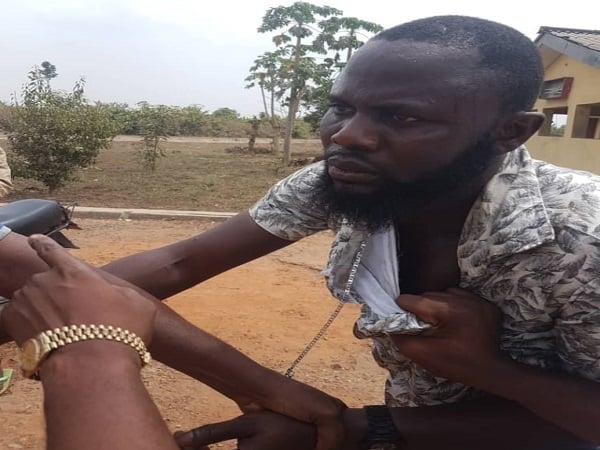
On Saturday February 22 around 10:30 am, Oshinowo and his colleague arrested the late Kazeem in company of his teammate, Sanni Abubakar.
Advertisement
Kazeem, also known as Kaka by fans, was a defender with Remo Stars FC, a popular local football club founded by Kunle Soname, the owner of Bet9ja, the gaming company. The club plays in the second division in the Nigerian Football League, NFL.
That morning, Kaka, along with Abubakar, was running an errand for his manager when the SARS police officers stopped him at Ita Oba Roundabout in Sagamu.
Advertisement
According to Abubakar, the two policemen came down from an unidentified Sienna bus, ordered them to surrender their mobile phones before they led Kazeem away from the Lexus car he was driving into the Siena, while he (Abubakar) was ordered to remain in the Lexus car with the another SARS operative and two ladies whose identity were then unknown. The two footballers were then driven away.
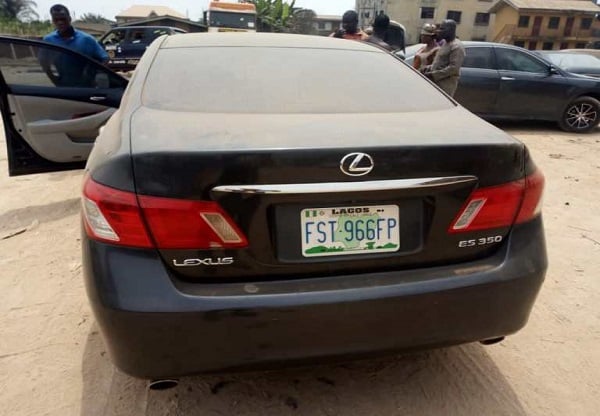
Narrating how his friend died to The ICIR, Abubakar said:
Advertisement
“Getting to the expressway, a U-turn was made towards Abeokuta and Kazeem questioned why they were heading to Abeokuta instead of Sagamu and due to his consistent questioning he was thrown out of the bus from the back seat of the driver’s side. Within seconds, a coming vehicle hit him and he was fatally injured. But instead of taking him to Ogun State University Teaching Hospital (OSUTH) which was nearer, the policemen took him to a hospital farther away from Sagamu town and he died before they arrived at the hospital.”
The reason why Kaka was not taken to the nearby hospital remains a puzzle to his family.
Advertisement
“If they had, he probably could have survived,” the father said. The parents are unequivocal about who was responsible for their son’s death.
But the police’s account is different.
Kaka was not pushed, he tried to escape — police
According to Abimbola Opeyemi, a superintendent of police and Ogun command public relations officer, Kaka was arrested by the SARS operatives for wearing a military cap to intimidate other people in the community. And he was not a soldier.
“The report about him says he always put on military fatigue, and with that, he used to harass people and when the police went to arrest him they saw him with the military face-cap” the police spokesperson said.
“And after he was arrested, the police officers decided to bring him to Abeokuta, but Kaka’s vehicles developed a fault at Orile-Imo and the two vehicles had to stop. Then the suspect jumped down in an attempt to escape. As he came down, an oncoming car knocked him down. If the policeman was the one that pushed him down, can he be so stupid to carry him to the hospital?”
The spokesman told The ICIR that Abubakar’s statement taken by the police confirmed that Kaka was not pushed by the police. Rather, he was hit while trying to escape.
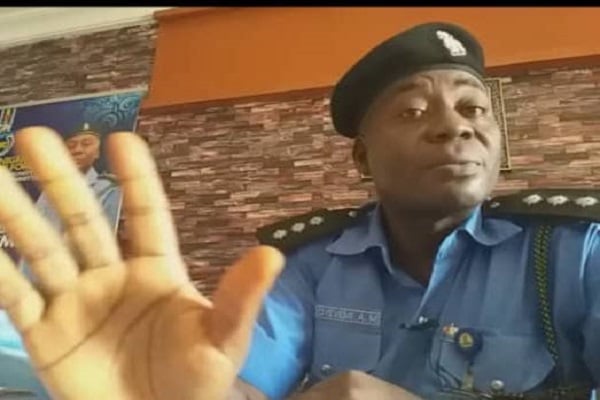
“We interrogated the friend and he said the force at which Kaka came down from the vehicle made him think that maybe he was pushed.” He also said it was only one policeman that carried out the arrest, as against the rumour that the policemen are two. “The others are civilians, an informant and two other ladies.”
In an interview with The ICIR, Abubakar denied making such a statement to the police.
“The police have their own way of telling their story, but I am very sure that he was pushed,” he insisted.
The deceased boy’s parents have also denied the claim their son used to wear military fatigue. “His favourite dresses were his jerseys. He had them in different colours. I was the one who used to wash his clothes, so I should know. He never had to wear military clothes, he did not have any,” said Mrs. Selimot Tiamiyu, Kaka’s Mother.
Other cases of police brutality
Nothing ever prepares anyone to deal with the dreaded SARS operatives. And many youths have found out this truth only too late.
One of the unlucky youths is Emeka Egbo, 29, who was arrested by SARS operatives in Enugu and was beaten to death.
Amnesty International reported the incident in a publication, Nigeria: You Have Signed Your Death Warrant.
After the arrest of Emeka, his relative visited the police to have him released, but the officers denied them entry because they could not pay, Amnesty International reported.
“We were not told why he was arrested. We returned in the evening and were taken inside the SARS office after paying the money demanded by the policemen. The squad leader told me and five of our relatives that Emeka is dead… They said they were not responsible for the death of Emeka. We were not allowed to ask any questions or seek clarification,” a relative told Amnesty Nigeria.
The family contacted a lawyer and the National Human Rights Commission, NHRC, who made repeated demands for an investigation.
In December 2015, the police authorities decided to investigate the incident but the family did not hear anything further on the outcome of the investigation.
Then there was the case of Kolade Johnson who was killed by SARS operatives in Lagos, March last year. Johnson was watching a live football match between Liverpool and Tottenham at around 4:30 p.m when he was hit by a stray police bullet and died. He was 36 years old.
Several other cases of SARS killings have been reported in the news and shared on social media. The victims include Emmanuel ,Danladi Luka, 27, in Gombe State; Joseph Eidonojie-Ugbeni, Edo State; Nafiu Tunde, Iwo Osun State, Tochukwu Iro, Kano State, and others.
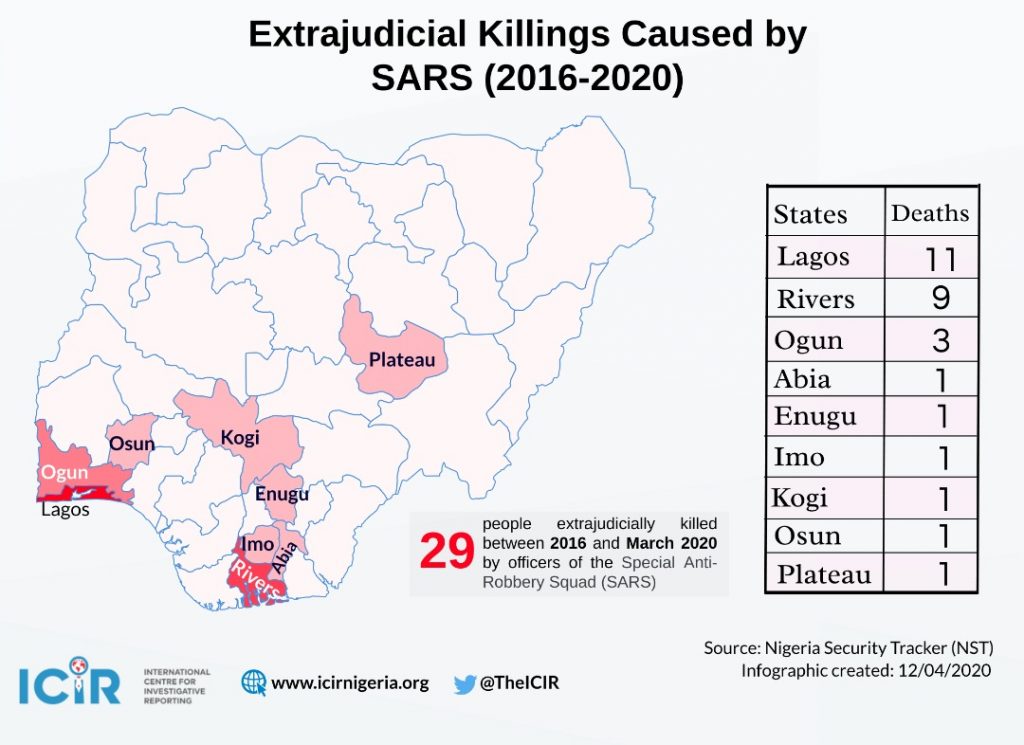
Though there is no comprehensive data of extra-judicial killings in the country, the Nigerian Security Tracker has recorded not fewer than 29 deaths caused by the SARS operatives between 2015 and 2020. The death of Kaka, a promising soccer star has added to the data.
Other victims of police killings in Sagamu
Michael, the barber
Kaka’s gruesome death shocked the youths of Sagamu, especially his fans, who had watched him play many times at the Gateway International Stadium. Their shock would later snowball into anger that led to the street protest the next day.
Michael Ogundiya, 28, was one of the youths who protested that day. That Sunday, he left home for his barbershop after bidding his mother Kehinde Ogundiya, goodbye, but he never told her he was going for a protest.
“It was later I heard that he followed his friends to protest the killing of Kaka and a policeman shot him. I could not believe the news until I saw his corpse,” the woman said in a tone suggesting she was yet to come to terms with the death of her first son. She had only two of them, Michael and his younger brother who is still in school.
One of the lucky survivors of the police attack at the protest said he knew the officer whose bullet killed Michael. He identified the killer policeman as Asa.
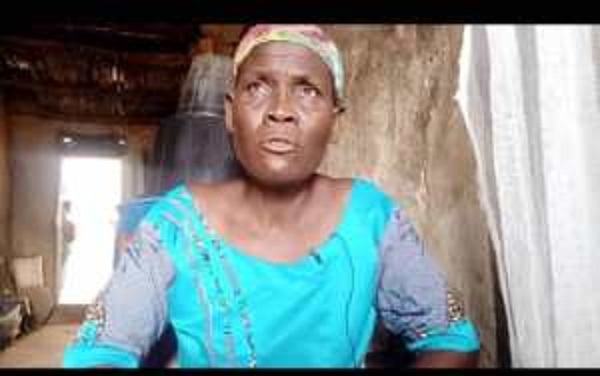
The ICIR visited the Nigerian Police Area Command, Sagamu in search of the suspected officer. But the Divisional Police Officer who identified himself as Okikiolu Agunbiade, feigned ignorance of the incident; then, he declined to comment.
“Please, direct all your questions to the PPRO in Abeokuta,” he said with an uneasy demeanour as he went back to work.
Within the premises of the police station, several officers were seen engaging in small talk, some were taking statements from suspected criminals but none showed any concern about the tragedy that occurred the previous days when three youths were felled by the police bullets.

In his interview with The ICIR, the police spokesperson had said the protesters were mere miscreants aiming “to burn down the police station”.
David, the bricklayer
But Odunayo Amusan, 25, wife of one of the victims of the police killing, said her husband, David Amusan, aged thirty-five, was no miscreant. He was a bricklayer and had just returned from work to have his meal the day he was killed.
“He just had his meal right here,” pointing at the two-seater in their one-room apartment where he was last seated, “and later he told me he wanted to stroll. I did not know he was not coming back home,” she said as fresh tear rolled down her face.
A neighbour’s wife from next door who heard her cry came in to calm her. Then she started crying herself. When the two women finally got hold of themselves, Odunayo continued to narrate how she learnt about her husband death.
She said many people who knew her and about the incident had been calling her to see whether she was at home. But nobody confirmed to her that her husband was killed in the protest. Instinctively, she decided to call her husband’s phone number but instead of hearing his voice, it was the voice of a stranger. “The owner of this phone is dead. I helped pick the phone where it fell,” that was how the news of her husband’s death was broken to her.
Odunayo said her world came crashing at that moment.
“I didn’t know whether to start crying or stay calm. But I felt something left my body. How could David who had never quarrelled or shouted or raised his hands at anyone including me be among those who were trying to burn down a police station? That is not my husband they are talking about. He just finished eating here…”

In the room, there was a king size bed covered with a colourful duvet, and opposite the bed is a worn two-sitter, standing next to a 16 inch-television. On the TV stand, David’s photographs were displayed. In one of the photographs, he was holding his certificate of apprenticeship at CASSO, a training outfit owned by a local building contractor. Most of the letters on the certificate have faded. In another, he was holding his daughter, Darasimi, now aged eight when she was a few months old. There were others, and all the photographs show the image of a happy youth. “That is the way he was in real life, a very happy person. He was no troublemaker,” the wife said.
Ganiyu Tiamiyu, the younger brother of the late Kaka said several eye-witness accounts confirmed that David indeed was not part of the protesters. He was caught by the bullet because the police was shooting indiscriminately at the crowd as people were running to different directions.

When the family went to OSUTH to claim the remains of the deceased, the hospital declined, asking them to obtain a police report and pay a service charge of N100, 000 before the body can be released. “And for three days, they left my husband unattended to. By the time we eventually returned to the hospital, he was swollen up,” and she started to weep again.
Odunayo met her husband about 11 years ago when the latter came to Sagamu from Oyo town in search of job, and they married not long after. The marriage has been blessed with two children, a girl Darasimi, 8 and a boy, Jeremiah 5.
When The ICIR visited the family, the two children were still unaware that their father was dead. They both thought their father had travelled, and would soon return. In their optimistic expectation, they smiled for the reporter’s camera. Odunayo said she is yet to tell them what happened to their father. “I just don’t know how to tell them.”
But that was the least of her problems, she said. The bigger problem is catering for the two children without the help of her husband who was the family breadwinner. Though there is a small stall in front of their rented apartment where she sells candies, biscuits and household items, the three family members could barely survive on petty trading. Yet there was a loan of N110, 000 which the deceased was paying back every Tuesday at the rate of N6,000. The loan was used to buy a portion of land.
“We planned to build a small house after paying the loan because my husband said we could not continue to pay N48, 000 every year as rent.”
That land has become David’s final resting place since the family could not afford to take him back to Oyo.
“It is too expensive to take him home,” the deceased younger brother, Timothy said.
Even the money paid at the hospital to have him released was paid by the family of the slain footballer. Kaka’s brother -confirmed that the family paid N425, 000 before all those killed in the protest could be discharged from the hospital.
Otega, the tailor
The third victim of the police brutality was Otega Ogaga, a 30-year-old youth who had just completed his apprenticeship as a tailor. His father, Samuel Ogaga, said he rose from sleep that day without any premonition that he would lose a child. Otega’s father, a native of Delta State, arrived Sagamu in 1979 and has lived in the town since then “because it is peaceful.” The man said he had all his six children in Sagamu: Four females and two males. “I had six of them and ‘Tega is the fourth but he is such a lovely boy, my carbon-copy, the favourite of his mother.” It was only recently he rented an apartment of his own in Texaco area, having completed his apprentice, the father said.
On the fateful day, it was Otega’s younger brother, who now lives in Ile-Ife, that called their father saying he heard from friends that his brother had been shot, and that he had been taken to the teaching hospital, OSUTH.
The old man said he first hesitated telling his wife who was frying fish in the backyard, but later decided against it because she might find out from others. After assuring the woman that all would be well, he rushed down to the hospital where he was told to get blood for transfusion because ‘Tega and other victims of the gun shots had lost too much blood. And some youths immediately offered to donate blood, but later they were told that he did not make it. “It was at the mortuary I first saw his dead body.”
Since then, he said, nobody has come to explain to him why his son deserved to die like a dog on the street when he is not an armed robber.
“And there is nothing we could do because I have nobody to fight on my behalf. So I have left everything to God who has power over all of us. We have accepted our fate.”
#EndSARS campaign
Mr. Ogaga is unaware of the # EndSARS campaign which started on the social media in 2017 by a man called Segun Awosanya, a human rights activist who has been on the frontline of the struggle against police brutality in Nigeria.
Awosanya, also known as Segalink on Twitter, said in an interview with Channels Television that the youth are the most affected by police brutality.
He blamed the culture of impunity by the police on the oppressive colonial law that created the police force.
“The Police Act that created the police in 1943 did not give consideration to the human rights of people. Human rights came years long after the law came. The military interregnum makes it worse for them, So over time, police see itself as an oppressive system that protects the ruling class from the people.”
He is of the view that commanders of SARS must be prosecuted for all the crimes committed by rogue operatives in the unit.
“We must repudiate the attempt to relegate the citizenry to a subclass of human existence. The spate of abuse of human rights cum extrajudicial killings is alarming,” he tweeted last year.
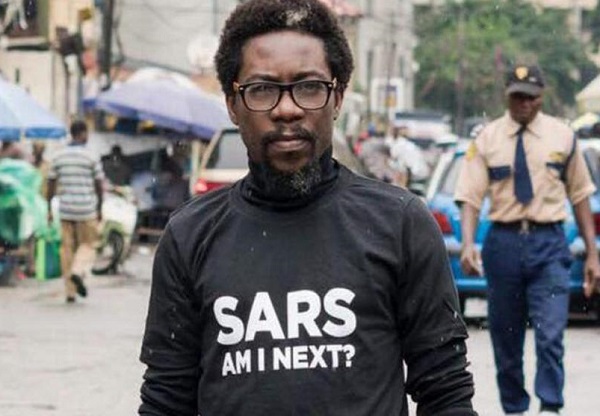
A former Assistant Inspector General of Police, AIG, James Caulcrick also noted in the interview with Channels that previous administrations have made efforts to reform the police, but this claim appears incredible because Nigerians have not seen any significant change in the conduct of policemen, especially the SARS operatives.
Caulcrick said it would take time for the culture of ensuring the human rights of citizens to be entrenched in the police.
“This will happen soon,” but he added that there is a need to improve the recruitment process as well as the welfare of the police.
This will require regulation.
In April 2019, the Nigerian Senate passed the Police Reform Bill. Bukola Saraki, the former Senate President said the bill aims at improving the condition of service of the Nigerian police as well as ensuring that Nigerians are protected at all times.
“…There is nothing better we can do in honour of those who have lost their lives along the way due to the fact that our laws at that time were not in line,” Saraki said.
Today marks a year that the Senate passed the Police Reform Bill, but President Muhammadu Buhari is yet to give assent. And between April last year when the bill was passed and now, several young Nigerians have been fell by bullets from SARS operatives.
While the wait continues, the family of Kazeem Tiamiyu and other victims of police brutality across the country can only hope that justice will be served.
“I want to see that my son gets justice, and that the man who killed my son gets his own punishment. And I want a stadium to be named after him,” said Kaka’s mother.
But it remains uncertain how soon the request of the bereaved woman will be granted.
This story first appeared on The ICIR
Add a comment
